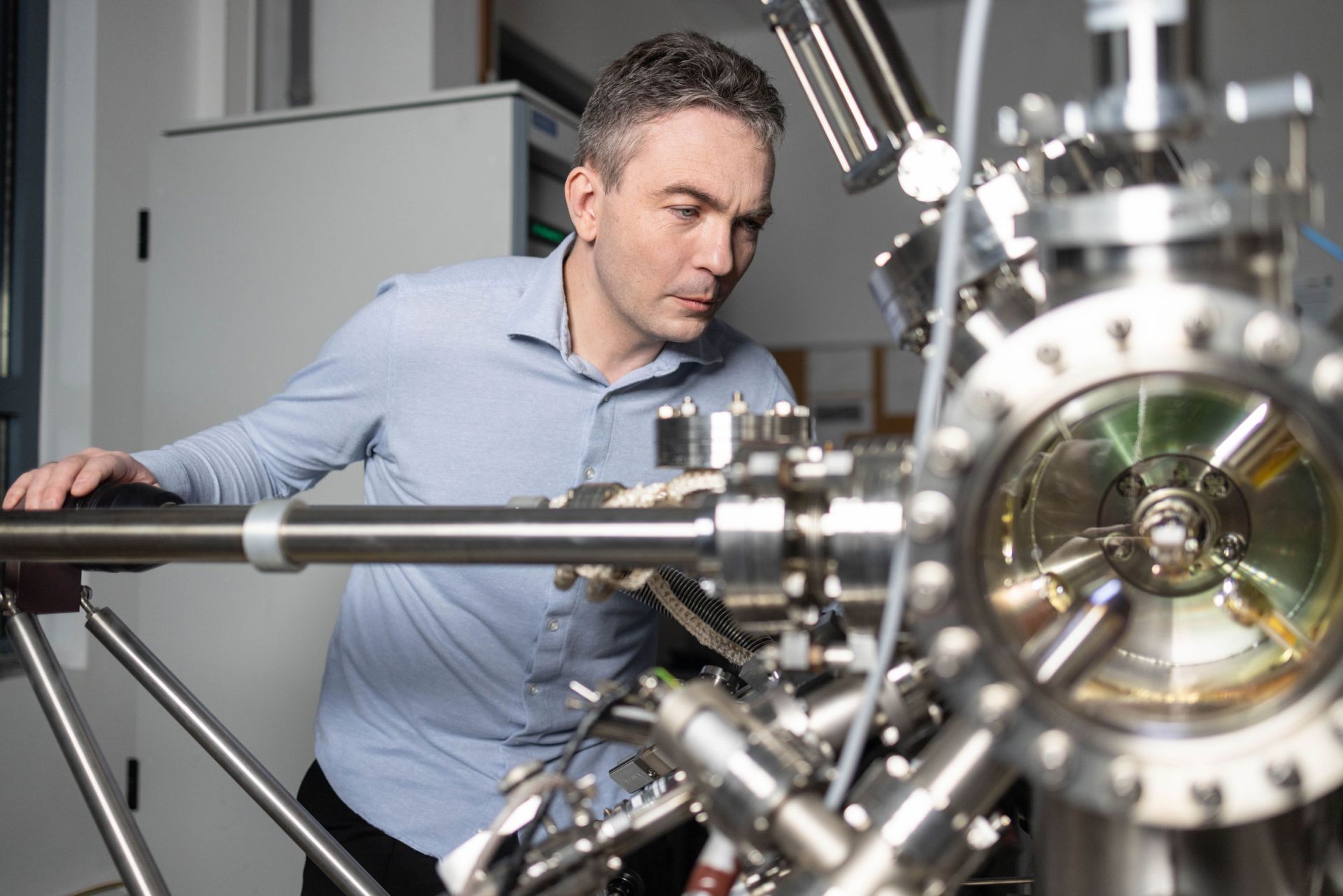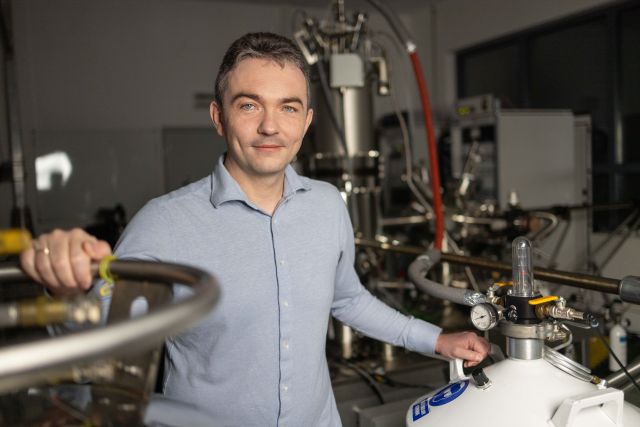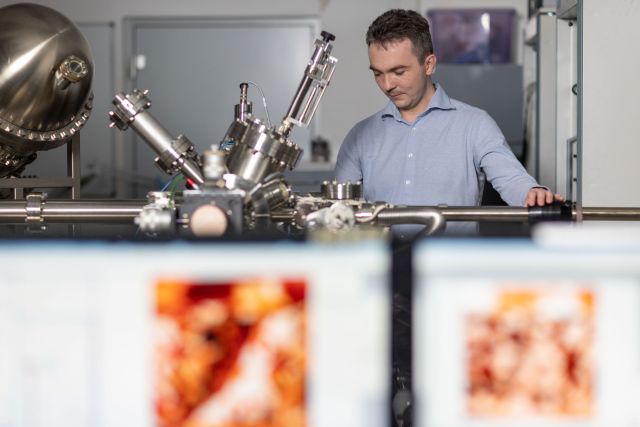Principal Investigator
:
Dr hab. Szymon Godlewski
Jagiellonian University
Panel: ST5
Funding scheme
: M-ERA
announced on
16 March 2022
In our age and time, as the world searches for alternative energy sources and ways to expand their use, power collection and storage play an incredibly important role. One of the key areas of current research and technological development focuses on the construction and improvement of batteries, and lithium-ion batteries (LIB) are among the leading rechargeable battery technologies nowadays. However, they are now reaching the limits of their performance. One proposed solution to address their limitations is to replace lithium-carbon anodes used in LIBs with lithium-metal batteries (LMB). It is expected that the implementation of this technology would increase the anodic capacity more than tenfold and liberate volume within the battery to accommodate more cathode material (which is of key importance to battery performance). Unfortunately, the practical applications of LMBs are complicated by the fact that the high-performance liquid electrolytes used in LIBs do not prevent their degradation, i.e. the formation of Li-metal dendrites during repeated charge and discharge, which can lead to internal short circuits and potentially catastrophic battery failure.
 Dr hab. Szymon Godlewski, photo by Michał Łepecki
The goal of our project is to develop an effective solution to this problem, based on the addition of porphyrin derivatives to the electrolyte in Li-metal cells. It is expected that molecule application could help increase the battery cycle life, as the formation of dendrite structures is prevented by the incorporation of porphyrin derivatives into the solid-electrolyte-interface (SEI) layer.
Dr hab. Szymon Godlewski, photo by Michał Łepecki
The goal of our project is to develop an effective solution to this problem, based on the addition of porphyrin derivatives to the electrolyte in Li-metal cells. It is expected that molecule application could help increase the battery cycle life, as the formation of dendrite structures is prevented by the incorporation of porphyrin derivatives into the solid-electrolyte-interface (SEI) layer.
Our project will analyse the impact of the organic material, such as porphyrin derivatives or phthalocyanines, known as tetrapyrrole macrocycles (TPMs) on the battery durability. So far, it has been shown that a modified SEI is significantly more effective at preventing the formation of dendrites in the long term. The successful implementation of this effect would be a game-changer in the development of high-capacity Li-based batteries.
To this end, we will experimentally study the structure and the formation process of a modified SEI formed by porphyrin derivatives as a basis for further electrolyte optimisation. In addition, we will develop computational models of the underlying structure, as well as the functional and mechanical properties of the modified SEI, to predict further optimisation pathways. Further, we are planning to optimise the composition of the electrolyte at the laboratory scale for future use in LMBs with a commercially available cathode material, and, at the last stage, fabricate a full cell demonstrator device and validate its performance. Our partners in Germany and Denmark will be responsible for constructing and optimising batteries for further practical applications. Our experience and research park will allow to study the lithium - molecule interface with truly atomic precision. Thanks to the use of scanning tunnelling microscopes (STM) and atomic force microscopes (AFM), which guarantee exceptional high-precision imaging, we will be able to get a deep insight into the atomic-scale architectural details of the interface. Moreover, we are planning to use the on-surface synthesis approach to create covalent molecular structures on highly reactive surfaces for the first time. In the past ten to twenty years, this innovative approach has allowed scientists to obtain new, hitherto unattainable molecular systems with atomic precision. This project will address the incredibly exciting, albeit difficult task of creating new chemical bonds between molecular structures on a highly reactive lithium surface. Our research will provide a new insight into the chemistry of molecular structures on anodic surfaces and help us enter a brand new research area of controlled reactions on chemically active surfaces.
 3D image of the non-contact atomic force microscopy of undecacene generated through “on-surface synthesis” approach
3D image of the non-contact atomic force microscopy of undecacene generated through “on-surface synthesis” approach

Project title: Stabilization of Lithium Metal Anodes with Porphyrin-based Electrolyte Additives
Dr hab. Szymon Godlewski
Szymon Godlewski is a professor at the Jagiellonian University. He earned his PhD in 2011, followed by the degree of habilitated doctor in 2019. Ever since the early days of his career, his research interests have centred on constructing atomic and molecular systems. In the last few years, he has focused his attention on the so-called on-surface synthesis approach to initiate chemical reactions and create new organic structures directly on crystalline substrates. He has received several awards for his scientific activities, such as the scholarship of the Ministry of Science and Higher Education for outstanding young researchers and the Foundation for Polish Science (FNP) scholarships. He has conducted research projects funded by the National Science Centre (NCN) under the SONATA, SONATA BIS and OPUS schemes.



